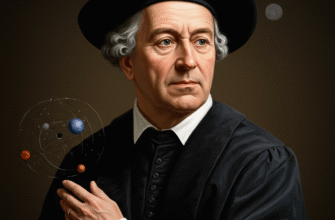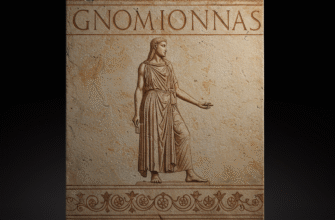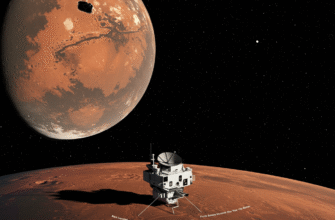Gazing into the velvet expanse of the night sky, one celestial body often commands attention with its steady, brilliant light. This is Jupiter, the largest planet in our solar system, a gas giant of immense proportions. But long before telescopes unveiled its swirling storms and numerous moons, this wanderer among the stars held a place of supreme importance in the minds of ancient peoples. Its namesake was none other than the king of the gods, a figure known as Jupiter to the Romans and Zeus to the Greeks. This dual identity, as a celestial sovereign and a divine ruler, wove a rich tapestry of myth, belief, and early astronomical understanding.
The Divine Monarch: Zeus and Jupiter
In the pantheons of ancient Greece and Rome, Zeus and Jupiter reigned supreme. Though their names differed, their essence was largely synonymous: the god of the sky, thunder, lightning, law, and order. His story is one of power, ambition, and a cosmic struggle that established his dominion over gods and mortals alike.
Birth and Ascent to Power
The tale of Zeus/Jupiter’s rise begins with a prophecy. His father, Cronus (Saturn in Roman myth), had usurped his own father, Uranus. Fearful of a similar fate, Cronus devoured each of his children as they were born. However, when Zeus was born, his mother Rhea, desperate to save him, tricked Cronus by offering a swaddled stone instead. Zeus was hidden away on the island of Crete, nurtured and protected until he reached manhood.
Upon attaining maturity, Zeus confronted his father. Accounts vary, but a popular version involves him tricking Cronus into regurgitating his swallowed siblings – Hestia, Demeter, Hera, Hades, and Poseidon. United, these deities, along with other allies like the Cyclopes (who forged Zeus’s mighty thunderbolts) and the Hecatoncheires (hundred-handed giants), waged a cataclysmic ten-year war against Cronus and the Titans, known as the Titanomachy.
Victory was ultimately theirs. The Titans were overthrown and imprisoned in Tartarus, the deepest abyss of the underworld. The cosmos was then divided among the victorious brothers: Zeus claimed the heavens and supreme authority, Poseidon the seas, and Hades the underworld. Jupiter, as the Roman counterpart, inherited this narrative, solidifying his position as Optimus Maximus – the Best and Greatest.
Zeus/Jupiter’s ascent to power through the Titanomachy is a cornerstone of Greek and Roman mythology. It symbolizes the triumph of a new order of gods, often associated with more civilized aspects, over the primordial forces represented by the Titans. His rule was not unchallenged, notably by the Giants in the Gigantomachy, but his supremacy was consistently reaffirmed, cementing his role as the ultimate divine authority.
Attributes and Symbols of Kingship
The king of the gods was readily identifiable by his potent symbols. The thunderbolt, crafted by the Cyclopes, was his primary weapon and emblem of his power over the skies and his ability to dispense justice or wrath. The eagle, a majestic bird soaring high, was his sacred animal and messenger, often depicted carrying his thunderbolts or accompanying him. The sturdy oak tree, known for its strength and longevity, was also sacred to him, with oracles like that at Dodona interpreting the rustling of its leaves as divine messages.
He was typically portrayed as a regal, bearded figure, mature and imposing, often seated on a throne, exuding authority and wisdom. His domain was not just the physical sky but also the abstract realms of divine law, justice, hospitality (xenia), and the protection of oaths. Kings and rulers on Earth were thought to derive their authority, in part, from him, looking to his example for guidance in governance and judgment.
The Celestial King: Jupiter the Planet
Long before the Romans named it, the planet we call Jupiter captivated ancient sky-watchers. The Babylonians, meticulous astronomers, knew it as Marduk, their chief deity, associating its stately, bright presence with their supreme god. This tendency to link prominent celestial bodies with powerful deities was a common thread across ancient cultures, reflecting a worldview where the heavens directly mirrored divine hierarchies.
Why Jupiter? The Naming of a Giant
When the Greeks, and later the Romans, observed this particular “wandering star” (planētēs in Greek, meaning wanderer), several characteristics likely led to its association with their principal god.
- Brightness: Jupiter is one of the brightest objects in the night sky, often outshone only by the Moon and Venus. This inherent brilliance naturally suggested importance, preeminence, and divinity.
- Steady Light: Unlike stars that twinkle due to atmospheric disturbance, planets shine with a more constant, unwavering light. This steady gaze could have been interpreted as a mark of regal composure and steadfastness.
- Slow, Majestic Movement: Compared to swifter planets like Mercury or Mars, Jupiter moves with a slower, more deliberate pace across the zodiac. Its orbital period is nearly 12 Earth years. This majestic progression through the constellations could have been seen as befitting a king surveying his realm or a wise elder moving with purpose.
Thus, when the Romans systematized their planetary nomenclature, assigning the name of their king of gods, Jupiter, to this magnificent celestial body seemed an entirely logical and fitting tribute. The planet’s grandeur in the night sky mirrored the god’s own perceived majesty and supreme status within their pantheon.
It is crucial to understand that ancient peoples did not view planets as physical worlds in the modern astronomical sense. They were seen as divine beings, celestial symbols, or potent cosmic influences. Their movements and positions were believed to directly impact earthly affairs, forming the basis of ancient astrology, a system distinct from modern observational astronomy.
Astrological Significance in Antiquity
In ancient astrology, Jupiter was almost universally considered a benefic planet, a bringer of good fortune, luck, and positive outcomes. It was known as the “Greater Benefic,” highlighting its powerful and favorable influence, in contrast to Venus, which was termed the “Lesser Benefic.” Its influence was associated with a range of positive attributes:
- Expansion and Growth: Jupiter was thought to preside over abundance, prosperity, success in endeavors, and opportunities for personal and societal growth.
- Wisdom and Knowledge: It was linked to higher learning, philosophy, religion, spiritual understanding, and the pursuit of truth.
- Justice and Morality: Reflecting the god’s role as a divine arbiter, the planet Jupiter was connected to law, ethics, fairness, and sound judgment.
- Generosity and Optimism: A “jovial” temperament – cheerful, good-humored, benevolent, and magnanimous – was considered a hallmark of Jupiter’s influence. The word “jovial” itself derives directly from Jove, an older name for Jupiter.
- Kingship and Authority: Its association with the supreme god naturally extended to themes of leadership, honor, dignity, and high social standing.
The position of Jupiter in an individual’s natal chart or its transits through the zodiac were carefully scrutinized by ancient astrologers to predict favorable periods, opportunities for advancement, blessings, and spiritual development. It was a planet whose presence was generally welcomed and seen as auspicious.
Weaving God and Planet: A Symbiotic Relationship
The connection between Jupiter the god and Jupiter the planet was more than just a convenient label. It represented a deeply ingrained aspect of the ancient worldview, where the celestial and the divine were seen as inextricably linked, parts of a single, coherent cosmic order. The perceived characteristics of the planet reinforced the mythological attributes of the god, and vice-versa, creating a powerful symbolic resonance.
The planet’s commanding presence in the night sky served as a constant, visible reminder of the god Jupiter’s dominion over the heavens and earth. Its slow, dignified passage across the firmament was a celestial enactment of a king’s procession or a sage’s deliberate journey. When meteorological phenomena like thunder and lightning occurred, they were direct manifestations of the god Jupiter, whose celestial counterpart, the planet, often shone brightly above, underscoring his power. This created a potent synergy, where observations of the planet informed the understanding of the god, and myths about the god gave profound meaning to the planet’s movements and appearances.
For instance, if the planet Jupiter appeared particularly bright, was well-aspected by other celestial bodies, or was in a prominent position during a significant earthly event (like a coronation or a battle), it might be interpreted as a sign of the god’s favor, a portent of great happenings, or a divine endorsement. Rituals and prayers directed towards Jupiter the god might have been timed or oriented with an awareness of Jupiter the planet’s position in the sky, further cementing the bond between human religious practice and cosmic observation.
Echoes in Culture and Language
The profound influence of Jupiter/Zeus, both as a deity and as a celestial entity, permeated ancient culture and continues to echo today in surprising ways. The word “jovial,” meaning cheerful, good-natured, and friendly, directly stems from “Jove,” an alternative and older name for Jupiter, reflecting the beneficent astrological qualities attributed to the planet named after him. Oaths were frequently sworn “by Jove,” underscoring his role as a guardian of truth, promises, and solemn vows, a practice common in classical literature.
Countless works of art, from grand temple sculptures and monumental statues to intricate vase paintings and delicate frescoes, depict Zeus/Jupiter with his iconic thunderbolt, scepter, and attendant eagle. Literature, from Homer’s epics “The Iliad” and “The Odyssey” to Ovid’s “Metamorphoses” and Virgil’s “Aeneid,” is rich with tales of his exploits, his divine justice, his amorous adventures, and his often complicated relationships with other gods and mortals. These narratives not only entertained but also imparted moral lessons, explained natural phenomena, and reinforced societal values through a mythological lens.
The identification of the bright planet Jupiter with the king of gods was not a uniquely Greco-Roman phenomenon. The Babylonians, for example, named it after Marduk, their chief god and patron deity of Babylon. Similarly, in Hindu astrology (Jyotisha), the planet Jupiter is known as Brihaspati or Guru, the preceptor and teacher of the gods, associated with wisdom, knowledge, speech, and auspiciousness, reflecting remarkably similar “kingly” and beneficent qualities attributed to the celestial body across different cultures.
The Romans even named a day of the week after Jupiter: Iovis dies, or “Jove’s day.” This legacy persists in many Romance languages, where Thursday is jeudi in French (from Latin Jovis dies), giovedì in Italian (similarly derived), and jueves in Spanish (from Jovis). In English, “Thursday” comes from “Thor’s day,” named after the Norse god of thunder, Thor, who shares many attributes with Jupiter/Zeus, including wielding thunder and embodying strength, highlighting a common Indo-European mythological thread connecting these powerful sky deities.
The Enduring Legacy
The ancient understanding of Jupiter/Zeus as both a divine ruler and a celestial sovereign offers a fascinating glimpse into how our ancestors perceived the cosmos and their place within it. The sky was not an empty void but a dynamic canvas alive with divine beings, potent symbols, and direct influences on human destiny. The planet Jupiter, by its sheer brilliance, steady light, and stately motion, was a natural candidate to represent the pinnacle of divine power and order.
While modern science has revealed Jupiter as a colossal gas giant, a world of immense storms like the Great Red Spot, powerful magnetic fields, and dozens of moons, devoid of mythological consciousness, its ancient namesake continues to inspire a sense of wonder. The grandeur we now attribute to its physical size and complex atmospheric dynamics in a way mirrors the awe and reverence the ancients felt for the god and the bright “star” that bore his name. The King of Gods and the King of Planets, though understood through vastly different frameworks across millennia, both evoke a sense of majesty, power, and significance, a testament to humanity’s enduring quest to find meaning in the heavens above and connect it to life below.
The stories of Zeus and Jupiter, their triumphs, their flaws, their acts of justice, and their overarching dominion, formed a cornerstone of classical belief systems, shaping ethics, inspiring art, and underpinning societal structures. The planet Jupiter, shining down from the night sky, was a constant affirmation of this celestial order and divine presence. Even today, as we send sophisticated robotic probes to explore its turbulent atmosphere and mysterious moons, the name “Jupiter” carries with it the rich weight of ancient reverence, a bridge connecting our scientific age with the profound mythological imagination of our ancestors.








